 |
||
|
||
| ||
Thanks to:
Maxxx (maxm@online.sinor.ru), Mikhail Sugakevitch (Mishail@newmail.ru) Vjacheslav Gordeev AKA Slaydev (sarz@dale.elektra.ru) and Ruslan73 (http://forum.ixbt.com/users.cgi?id=info:Ruslan73) dmitro13 (dmytro13@hotmail.com) UnVial (lvg@pop.ioffe.rssi.ru) Sergey Gaidukov (gsaf@sura.ru) Mikhail Kuzmin (kuzmin@laser.ru) for improving rating calculation method. We have made significant changes to the rating calculation method for several reasons. Firstly, there was a number of math errors, so we decided to use geometrical average for all test results. Secondly, the quality value had little to no influence on the results. This was unacceptable due to newer games, in which AA or AF are very important. Thus we made AA and AF influence floating. The geometrical average performance is divided by 60 FPS (as a standard of average minimal sufficient performance) to obtain a coefficient of suitable performance. It's multiplied by a pre-fixed AA or AF coefficient that depends on certain card specs. This gives us a coefficient of card's AA or AF potential, that we finally take into consideration. Otherwise top-end cards would be underestimated, because when you spend $400-500, you get not only the FPS in existing games, but some potential for some higher quality in the future. Otherwise $10 cards made in 2002 could get high marks due to their low price. Usability ratings are calculated by the following formula: The similar calculation (just for the 1600x1200 resolution) indicates
the prospect of a videocard. The formula contains the same indexes
as those used for usability rating calculations, but accelerator's
price isn't considered. So, this rating indicates the capabilities
of the current
You can also compare two ratings to see the correspondence of product prices to their capabilities and features.
Legend:
Poss is calculated by the following formula: Where:
P.S. We understand that such way of making ratings is not perfect, therefore we await suggestions and comments from our readers to be considered in our next 3Digest. |
|
Article navigation: |
| blog comments powered by Disqus |
| Most Popular Reviews | More RSS |
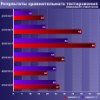 |
Comparing old, cheap solutions from AMD with new, budget offerings from Intel.
February 1, 2013 · Processor Roundups |
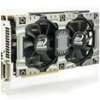 |
Inno3D GeForce GTX 670 iChill, Inno3D GeForce GTX 660 Ti Graphics Cards A couple of mid-range adapters with original cooling systems.
January 30, 2013 · Video cards: NVIDIA GPUs |
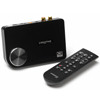 |
Creative Sound Blaster X-Fi Surround 5.1 An external X-Fi solution in tests.
September 9, 2008 · Sound Cards |
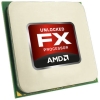 |
The first worthwhile Piledriver CPU.
September 11, 2012 · Processors: AMD |
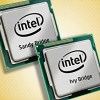 |
Consumed Power, Energy Consumption: Ivy Bridge vs. Sandy Bridge Trying out the new method.
September 18, 2012 · Processors: Intel |
| Latest Reviews | More RSS |
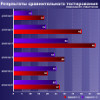 |
Retested all graphics cards with the new drivers.
Oct 18, 2013 · 3Digests
|
 |
Added new benchmarks: BioShock Infinite and Metro: Last Light.
Sep 06, 2013 · 3Digests
|
 |
Added the test results of NVIDIA GeForce GTX 760 and AMD Radeon HD 7730.
Aug 05, 2013 · 3Digests
|
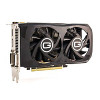 |
Gainward GeForce GTX 650 Ti BOOST 2GB Golden Sample Graphics Card An excellent hybrid of GeForce GTX 650 Ti and GeForce GTX 660.
Jun 24, 2013 · Video cards: NVIDIA GPUs
|
 |
Added the test results of NVIDIA GeForce GTX 770/780.
Jun 03, 2013 · 3Digests
|
| Latest News | More RSS |
Platform · Video · Multimedia · Mobile · Other || About us & Privacy policy · Twitter · Facebook
Copyright © Byrds Research & Publishing, Ltd., 1997–2011. All rights reserved.